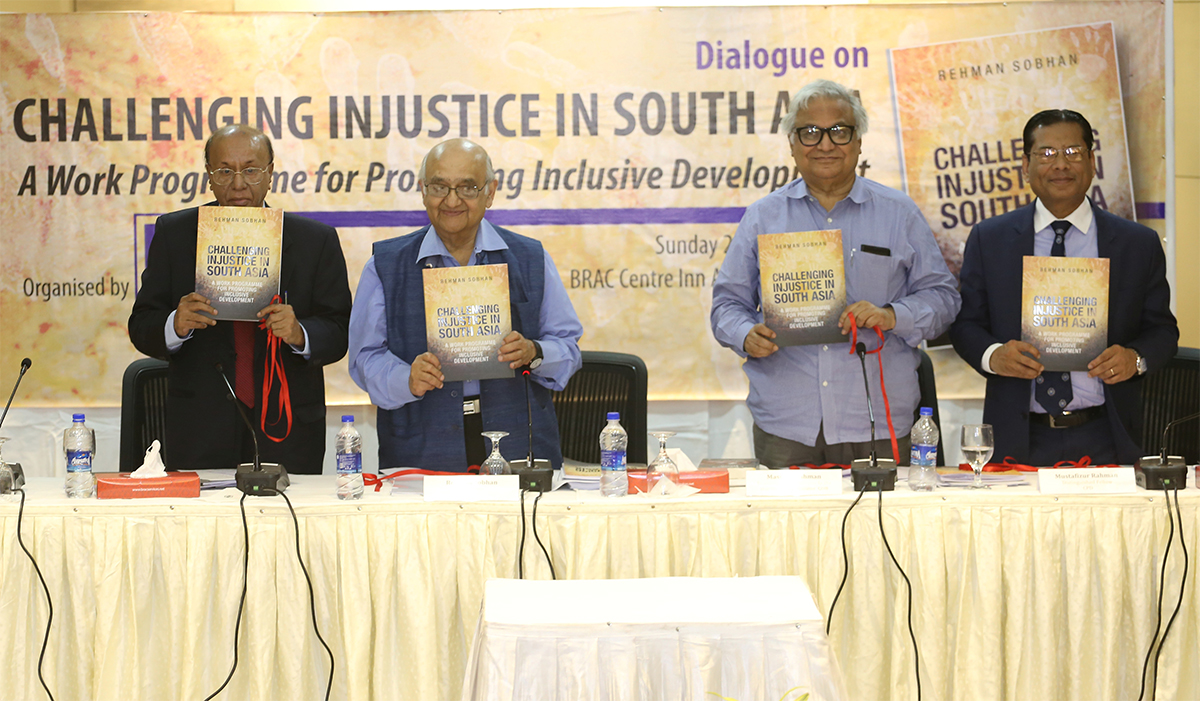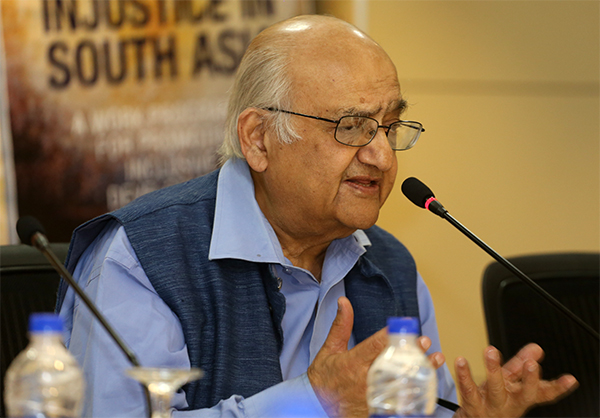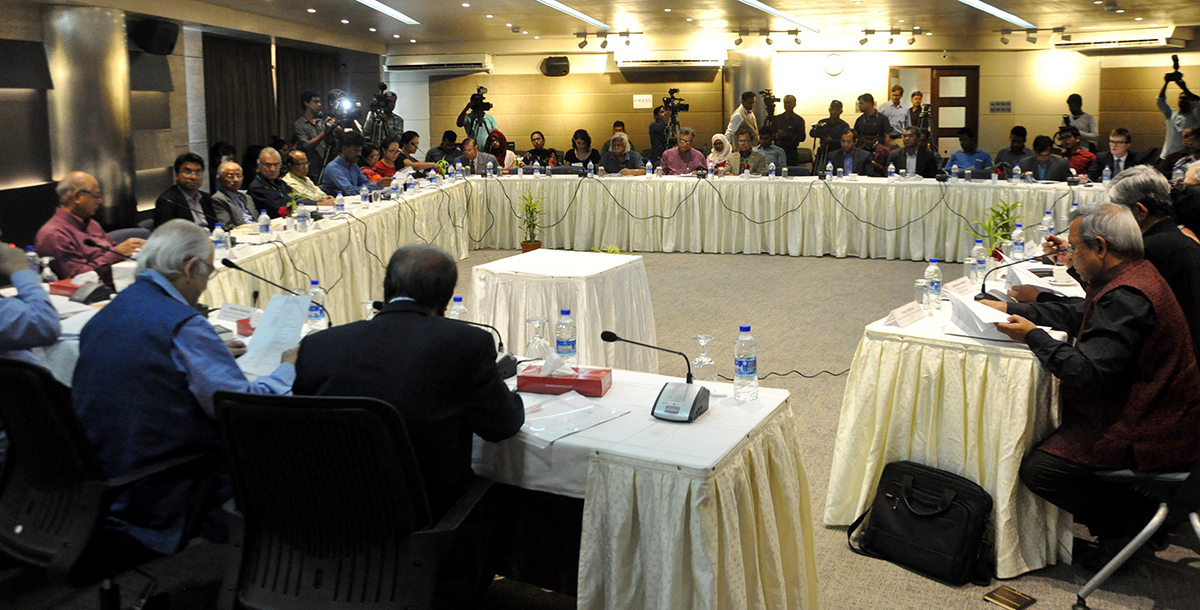
The unjust nature of society and unequal distribution of opportunities create and reproduce poverty and inequality in most South Asian nations. Professor Rehman Sobhan, Chairman of Centre for Policy Dialogue (CPD), made the remark at a dialogue on launching his book titled Challenging Injustice in South Asia: A Work Programme for Promoting Inclusive Development in Dhaka on 25 February 2018.
The book is derived from a four-year study that Professor Sobhan had conducted on the theme of Challenging the Injustice of Poverty: Agendas for Inclusive Development in South Asia. The study was carried out at CPD, based on research inputs from Bangladesh, India, Nepal, Pakistan and Sri Lanka. Dr Masihur Rahman, Prime Minister’s Economic Affairs Adviser, was present as the chief guest at the dialogue.
 Professor Sobhan observed that traditional agendas have only recognised these problems, but did not come up with any concrete ideas to resolve these issues. On the other hand, contemporary and principal interventions tended to focus only on inclusion in the outcomes of development and address symptoms of the problem, he highlighted. Therefore, the present study coveres a more limited canvas of the work in question and focuses on unequal access to assets, inequitable participation in the market, inequitable access to human development and unjust governance as the sources of the problem, he said.
Professor Sobhan observed that traditional agendas have only recognised these problems, but did not come up with any concrete ideas to resolve these issues. On the other hand, contemporary and principal interventions tended to focus only on inclusion in the outcomes of development and address symptoms of the problem, he highlighted. Therefore, the present study coveres a more limited canvas of the work in question and focuses on unequal access to assets, inequitable participation in the market, inequitable access to human development and unjust governance as the sources of the problem, he said.
He also came up with recommendations in six broad areas to promote inclusive development in Bangladesh and other South Asian countries, which include enhancing market power of the excluded and broadening ownership of assets through collective action.
While talking about enhancing market power of the excluded, Professor Rehman Sobhan recommended formation of projects across the country following the Amul model of India. He suggested establishing a dedicated mutual fund for low-income investors, providing an equity stake for RMG workers in the industry and forming a service exporting corporate enterprise under the ownership of migrant worker, small producers, rickshaw pullers and slum dwellers. In case of Padma Bridge and other large infrastructure projects, the government can issue bond to give ownership to people, he recommended. Citing inequitable access to human development, Professor Sobhan observed that huge disparity is evident in health and education sector in Bangladesh. He emphasised the need to form a Citizens’ Commission to monitor the overall situation and called upon both the policymakers and civil society members to come forward.

Dr Atiqur Rahman, former Lead Strategist and Policy Coordinator, International Fund for Agricultural Development; Dr Selim Raihan, Professor, Department of Economics, University of Dhaka and Executive Director, SANEM; Dr Manzoor Ahmed, Emeritus Professor, BRAC University; Dr Salehuddin Ahmed, former Governor, Bangladesh Bank; Dr Nazneen Ahmed, Senior Research Fellow, Bangladesh Institute of Development Studies (BIDS); and Dr M M Akash, Professor, Department of Economics, University of Dhaka, commented on different chapters of the publication at the dialogue. Ms Khushi Kabir, Coordinator, Nijera Kori; Mr Asif Saleh, Senior Director for strategy, Communications and Empowerment at BRAC; Mr Mujahidul Islam Selim, President, Communist Party of Bangladesh (CPB), Dr Zafrullah Chowdhury, Founder and Trustee, Gonoshasthaya Kendra; and Dr AB Mirza Azizul Islam, former Adviser to the caretaker government, also spoke among others at the event.

